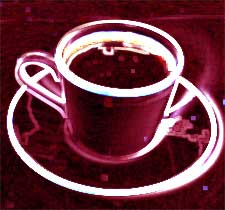By Barry Keate
Barry Keate, has lived with tinnitus over 40 years and has published 150+ research articles on numerous aspects of tinnitus. He is an expert on the condition and a well-known advocate for those with tinnitus.
 Otolaryngologists (ENT physicians) often advise their tinnitus patients to avoid use of caffeine in order to reduce tinnitus sounds. Michael Seidman, MD, one of the preeminent tinnitus specialists in the US, encourages his tinnitus patients to reduce or eliminate their use of caffeine, salt, alcohol, simple sugar, aspartame (NutraSweet or Equal), MSG and food colorings and dyes. This has been considered sage advice for many years.
Otolaryngologists (ENT physicians) often advise their tinnitus patients to avoid use of caffeine in order to reduce tinnitus sounds. Michael Seidman, MD, one of the preeminent tinnitus specialists in the US, encourages his tinnitus patients to reduce or eliminate their use of caffeine, salt, alcohol, simple sugar, aspartame (NutraSweet or Equal), MSG and food colorings and dyes. This has been considered sage advice for many years.
However, as far as caffeine is concerned, there is now clinical evidence coming from the UK that seems to contradict this advice.
Dr. Seidman states that patient response to these dietary suggestions runs from acceptance to stiff resistance. He has some patients who drink up to 25 cups of coffee per day. Some report back after 8 weeks upset that they had to go through caffeine withdrawal but still experience tinnitus. Others may drink as little as ½ cup per day and stop at his suggestion but express skepticism that this has the ability to reduce tinnitus.
Dr. Seidman responds that he does not know what particular “poison” or tinnitus trigger any one individual may have. It may be that any or all of the above worsen someone’s tinnitus. Anecdotally, he has had several patients quit their daily caffeine and they tell him their tinnitus went from an 8 to a 5 on a scale of 1-10.
Personally, I drink two cups of coffee in the morning to wake up. I try to avoid caffeine for the rest of the day and do not drink more coffee or soft drinks. I’ve been doing this for most of my adult life except when I quit coffee many years ago in an attempt to reduce my tinnitus. It didn’t work and I went back to drinking coffee. For me, salt is the real trigger, which I’ll discuss next month. What eventually truly reduced my tinnitus was Arches Tinnitus Formulas.
Clinical Study on Caffeine and Tinnitus
Now, in the first clinical study to specifically look at the relationship between caffeine consumption and tinnitus, researchers at the Centre for Hearing and Balance Studies at Bristol University surprisingly found no statistical evidence that giving up caffeine relieves tinnitus. Furthermore, they found that acute caffeine withdrawal might actually add to the problem.1
Sixty-six participants with tinnitus who consumed at least 150 mg a day of caffeine (about 1 cup of drip coffee) took part in a 30 day trial.
The study employed two groups which operated under two differing constructs:
1 – Taking usual caffeine consumption followed by a phased withdrawal.
2 – Starting with a phased withdrawal followed by reintroduction then usual caffeine consumption.
The study was designed double-blind so that participants would not know which construct they were following. They knew there were periods they would receive caffeine and periods they wouldn’t, but they did not know at any point if they were consuming caffeine or a placebo.
Participants kept a brief record of their tinnitus symptoms each day. They were also required to complete a questionnaire to measure their tinnitus three times during the study; at the start, after they had been withdrawn from caffeine for ten days, and after they had consumed their normal amount of caffeine for ten days.
Researchers concluded “Caffeine had no effect on tinnitus severity. . . Significant acute adverse symptoms of caffeine withdrawal were observed. No evidence was found to justify caffeine abstinence as a therapy to alleviate tinnitus, but acute effects of caffeine withdrawal might add to the burden of tinnitus.”
Lead researcher for the study, Dr Lindsay St. Claire said, “With almost 85 per cent of adults in the world consuming caffeine daily, we wanted to challenge the claim that caffeine makes tinnitus worse. Many professionals support caffeine withdrawal as a tinnitus therapy, even though there is a lack of any relevant evidence, and, in fact, acute symptoms of caffeine withdrawal might even make tinnitus worse.”
This does not mean that stopping caffeine will not help anyone. As Dr. Seidman has noted, some drinkers of as little as ½ cup of coffee have improvement. Clinical studies are conducted to evaluate the mean difference between outcomes; a measure of statistical dispersion in a population. A small subset of individuals within the study may have different outcomes but there may not be enough of them to sway the overall statistics.
Despite these recent findings, I believe that it is wise for individuals to learn what triggers or worsens their tinnitus. If you think that caffeine may be a trigger, then it would a good idea to try caffeine abstinence and see if it reduces the sound. If caffeine withdrawal occurs and produces acute effects, or no change in tinnitus levels is discerned you always have the option of resuming your caffeine intake.
References:
1. Juliano, L., M. and Griffiths, R. R. (2004). ‘A critical review of caffeine withdrawal: empirical validation of symptoms and signs, incidence, severity and associated features.’ Psychopharmacology, 176, 1-29
